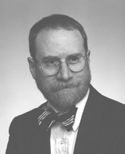Why is the Self a Lesser Cause?

by Sheldon Richman
October/November 2002
War increases the burdens of government. If you seek evidence, look around.
Government does not grow only in obvious ways, for example by gaining the power to hold individuals without charge or to monitor their lawful activities. It also grows through the promotion of a culture of sacrifice. In war, more than at other times, people are expected to serve the state’s purposes.
That quintessential court “intellectual,” David Gergen, whose sacrifice consists in working for anyone who possesses supreme power, recently chided President Bush in a New York Times op-ed for not asking more of the American people. He called for “the creation of a new sense of purpose in our national life.” I don’t know about Gergen, but most of the people I know already have a sense of purpose in their lives. As for purpose in our “national life,” in America that can only mean a dedication to leaving us free to pursue our own happiness. But that’s not what Gergen has in mind.
What he does have in mind is revealing, because his call for bigger government is only vaguely associated with fighting terrorism. The war just makes the sacrifice easier to justify.
He writes, “Mr. Bush can still demonstrate [wartime] leadership by linking present sacrifice with a better future in several ways. He can, for example, roll back his tax cuts and propose that the savings be redirected toward a broad social cause like improving the lives of children. If the war is about securing their safety, after all, why should we not be equally concerned about securing their health and education?”
Could anything be more out of spirit with what America was to be about? The Founders’ vision was one in which governance was limited to protecting life, liberty, and property. That vision did not include plundering people to finance transfer programs (which inevitably fail anyway), because the Founders understood that the best path to health, education, and the other good things in life was freedom and the resulting prosperity.
Gergen wants more than a tax increase. He said Bush should “embrace universal service” in a military or civilian capacity. That doesn’t really mean everyone, though. His proposal does not include the drafting of middle-aged university professors/magazine editors/former presidential counselors whose salary and speaking fees would easily absorb the tax hike he favors. Only 18-to-24-year-olds would be so honored — whether they liked it or not.
When politicians and their sycophants talk about sacrifice, they always mean coercion. Why, then, are the solemn pronouncements of those who would so cheerfully dispose of other people’s lives received with such respect? If Gergen wants to see someone make sacrifices, who’s stopping him?
Unfortunately, the president shares Gergen’s view. In a commencement address at Ohio State University, he endorsed the ethic of self-sacrifice and condemned “selfishness,” a red-herring term that can cover everything from what the ancient Greeks called the “good life” to the felonious ways of a thug. (Novelist Ayn Rand found it curious that victimizing others is typically regarded as being in one’s self-interest.) Bush urged the graduates to “serve our country, and a cause greater than self.”
But hold on. Hasn’t every leader who ever wished to accumulate power urged people to serve their country and a cause greater than the self? I can’t think of one who told them to be free and to achieve their own happiness. The call to sacrifice always precedes usurpation and tyranny.
Why is the self always regarded as a lesser cause? Everyone gets one precious life, and making it into something extraordinary is a demanding moral cause. Moreover, when people develop themselves into happy and productive individuals they inevitably help to improve the lives of others. In a market economy, one gets rich by enriching others with better goods and services.
To be sure, benevolence is admirable. Helping others when possible is what a good neighbor does. But that’s a far cry from an ethic of self-sacrifice.
The president’s message is that only service to others can validate one’s life. That is wrong. One’s life is an end itself. It requires no justification beyond itself. Beware the call for sacrifice.
Sheldon Richman is a senior fellow at The Future of Freedom Foundation in Fairfax, Va., author of Tethered Citizens: Why We Must Abolish the Welfare State, and editor of Ideas on Liberty magazine.
Also by Sheldon Richman
Copyright © 2002 The Future of Freedom Foundation. All rights reserved.

